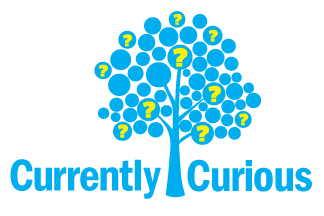Just how noncom are you?
Noncommercialism has historically been at the heart of public radio and television, both in mission and by law. But is that changing?
 Matt Martin, GM of KALW in San Francisco, told Current that he noticed at the recent Public Media Development and Marketing Conference that the word noncommercial “is disappearing from the lexicon” among people who work in public media. “At least that’s my impression,” he said.
Matt Martin, GM of KALW in San Francisco, told Current that he noticed at the recent Public Media Development and Marketing Conference that the word noncommercial “is disappearing from the lexicon” among people who work in public media. “At least that’s my impression,” he said.
People tend to say “public” instead, he added, and with that word, “you can choose the definition much more easily.”
Martin submitted the question, “Other than FCC rules, which don’t apply to digital content, what is the limit on commercialism in public media?” as part of our Currently Curious series. We put his question up to a vote along with two other candidates, and it drew the most interest from readers.
Both on-air and digitally, Martin said, it seems that “people are testing what they can do.” He’s wondering what is being lost as a commitment to noncommercialism slips away. “I think there’s a value proposition to our noncommercialism as an identity,” he said.
We’ll be working on a story to answer Martin’s question, but we’d also like to hear from you. Do you think public media’s sound is growing more commercial? How is your station or network staying true to noncommercial values on digital platforms, such as your website or podcasts? Where do you draw the line when the FCC isn’t drawing one for you?
Respond here with a comment or contact me with your thoughts. We might add your response to our reporting.
Submit your own question to Currently Curious in the form below. It could be investigated in a future story.






You’re so noncomm, you don’t even know how noncomm you are!
I think the only people who worry about public radio not sounding non-commercial enough are the people who never listen to commercial radio. Ten minutes of doing the latter, almost anywhere in the country, will put the difference into stark relief.
Also, with few exceptions (and slightly-crazy San Francisco might be one of them) the audience does not give a damn about a station being “non-commercial”. That’s both an “inside baseball” term that most people don’t understand, AND a term that defines itself negatively. As in, it defines itself by what it’s not. Poor branding all around.
That’s why “public” radio is far more popular. It actually describes the mission that most pubradio stations are trying to accomplish: public engagement. And it lends an air of “partnership” to the concept of being a listener to it: “we’re all part of the public”. That sort of thing.
Finally, the way most people really understand these descriptions is not about mission but about the program format. Most people say could tell you what “college radio” means but when pressed they’ll describe an “underground alternative rock” format characterized by block format, DJ-centric programming more than anything else….even though there are many college-owned stations that sound nothing like that. And even though “college radio” used to mean something VERY different in the late 1960’s and 70’s, and even more different in the 50’s.
“Public Radio” is a similar thing. You ask somewhat what “public radio” sounds like and any listener can immediately tell you: it’s a very distinct style that’s instantly identifiable throughout most, if not all, NPR, APM and PRX programming. You ask what “non-commercial radio” sounds like and get blank stares, or maybe a question: “you mean college radio?”